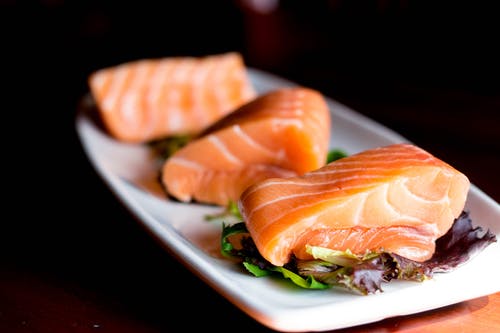Posted: Mar 27, 2019

The ocean has been steadily warming over the past 100 years, absorbing most of the heat trapped by atmospheric greenhouse gases. Unless we swiftly and dramatically reduce greenhouse gas emissions, the ocean could warm by as much as 4°C in the next 80 years. This puts fish and the people they feed and employ in hot water. Half of the planet relies on fish as a vital source of protein, and the fishing industry employs more than 56 million people worldwide.
Understanding where and why fisheries have been impacted by warming is necessary to ensure that the ocean remains a source of both nutrition and prosperity. In a study published in Science, I, along with colleagues from Rutgers University and the U.S. National Oceanic and Atmospheric Administration, show that ocean warming has already hurt fisheries’ ability to provide food and support livelihoods around the globe.
Fisheries are like a bank account, where we live off the interest. If fishing reduces the principal too much, the interest is lowered. Similarly, if the environment reduces the interest rate, the interest is also lowered. We combined maps of historical ocean temperature with estimates of historical fish abundance to see how warming has affected the interest rate and returns from the global fisheries bank account.
Fish don’t want their water too hot or too cold. As the ocean warms, they move poleward and into deeper water to follow their preferred temperatures. The impacts of these shifts are complicated; depending on the species, ocean warming and its knock-on effects can either increase or decrease the habitat available to fish. This can either increase or decrease the availability of important species in the food chain. Thus, ocean warming might benefit some fish populations while hurting others.
This is what we found in our research. Although warming has benefited some fisheries, it has hurt others. The losers outweighed the winners, resulting in a net 4% decline in sustainable catch potential over the last 80 years. Four percent might sound small, but it represents a loss of 1.4 million metric tons previously available for food and income.
Some regions have been hit especially hard. The North Sea, which supports large commercial fisheries for species like Atlantic cod, haddock, and herring, has experienced a 35% loss in sustainable catch potential since 1930. The waters of East Asia, neighbored by some of the fastest growing human populations in the world, have seen losses of 8% to 35% across three seas.
Other species and regions benefited from warming. Black sea bass, a popular species among recreational anglers on the U.S. East Coast, expanded its range and catch potential as waters previously too cool for this southern species warmed. In the Baltic Sea, juvenile herring and sprat (another small herring-like fish) have more food available to them in warm years than in cool years and have also benefited from warming. However, these climate winners can only tolerate so much warming and are likely to see declines as temperatures continue to rise.
So, what should we do?
First, some good news is that well-managed fisheries like Atlantic scallops were among the most resilient to warming, while fisheries with a history of overfishing, such as Irish and North Sea cod, were among the most vulnerable. Thus, preventing overfishing and rebuilding overfished populations will enhance resilience and maximize long-term food and income potential.
Second, new research suggests that food and profits from fisheries could be maintained with swift climate-adaptive management reforms. These reforms require that scientific agencies, in coordination with the fishing industry, develop new methods for assessing the health of fish populations and for setting catch limits that account for the impact of climate change. They also require the establishment of new transboundary institutions—similar to the multinational organizations that manage tuna, swordfish, and marlin—to ensure that management does not degrade as fish shift poleward from one nation’s waters into another’s.
Finally, if we want to keep the ocean as both a source of business and a source of food, we need to aggressively curb greenhouse gas emissions. Even the best fishery management reforms will be unable to compensate for the 4°C increase in ocean temperature projected for the end of the century under business-as-usual emissions.
Preserving productive fisheries is not the only reason we should be motivated to reduce greenhouse gas emissions. Other sectors of the ocean economy—including tourism, coastal development, and offshore energy—are also vulnerable to the combined threats of warming, ocean acidification, sea level rise, and rising storm frequency and intensity.
Although these impacts can be mitigated through aggressive emissions reductions, the social and economic consequences of inaction will only get worse the longer we wait.
By Christopher Free
March 26, 2019
Source and complete article: Barron's.com
Go-Wine's mission is to organize food and beverage information and make it universally accessible and beneficial. These are the benefits of sharing your article in Go-Wine.com